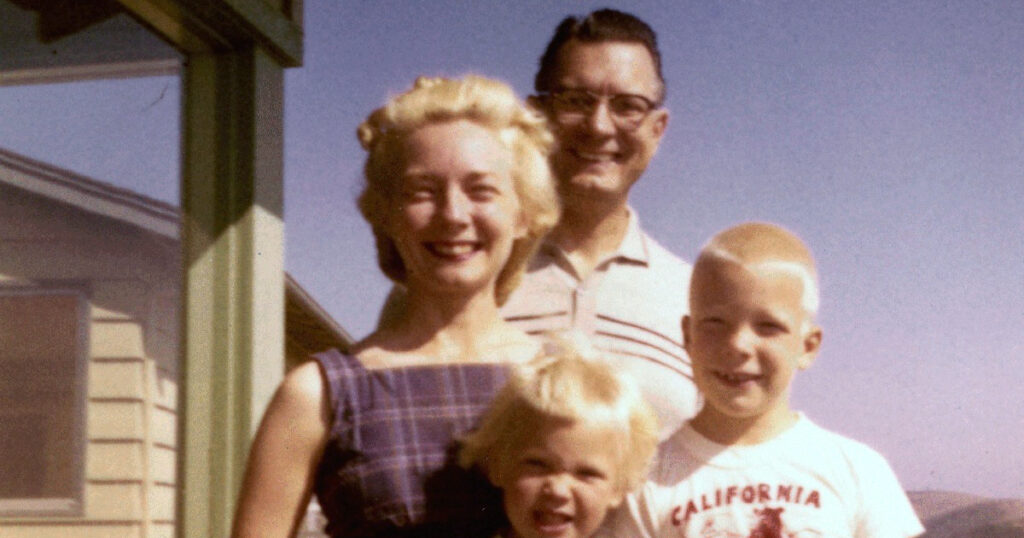As a new mother, I once had a friend and her daughter over for a playdate. After we set our babies down on a bright red and blue blanket I had spread on the floor, she commented, “I love this quilt. It’s so stimulating!” The comment arrested me. I suddenly felt as though my child were one of the microscopic crustaceans from my college physiology lab to be plied with caffeine so we could observe its heart rate.
It has become commonplace for parenting books to describe infants’ need for stimulation, but the language has always seemed inhuman to me. A brightly-colored quilt might be beautiful or cheerful or even engaging, but to speak of it primarily as stimulating implies — however unintentionally — that the child is nothing more than a human animal, a physical being reacting by instinct to its environment.
The words we use matter, and in many subtle ways the vocabulary of the world erodes the dignity and fullness of our created humanity. As Christians, we should choose words that edify our view of humanity. We need to speak in a way that confesses our nature as beings of both body and soul, created to live in relation with other humans and eternally with God.
Human from conception
Those engaged in abortion debates have long recognized the power of language in defining humanity. It makes a great difference whether we speak of a baby in the womb of his mother or a fetus in the uterus of a woman. One confesses the humanity of both woman and child while the other intentionally turns our thoughts to physical matter and away from any aspects of life, soul and human interdependence.
Or take a step further back in the beginning-of-life discussion. The phrase reproductive rights has become popular with those who wish to promote unlimited abortion and birth control. Consider the analogy we are actually drawing when we speak of human reproduction. This is the language of manufacturing. If the generating of children is likened to an assembly-line process, of course we can start and stop it at will, throwing away products we consider inferior or unwanted.
By contrast, the term procreation ties our humanity to God. If the act of begetting children is procreation, it flows from the abundant fruitfulness that God spoke into being. Can you imagine a discussion about procreative rights? The phrase jars the ear precisely because an act of creation cannot be a right; it is a blessing.
Service and relationship, body and soul
It is not only unseen, unborn human beings who are dehumanized by the language with which the world describes them. As my early experiences of motherhood revealed, parenting advice is rife with terms more appropriate to the laboratory than the playpen.
Just as caregivers are advised to ensure sufficient stimulation for infants, so parents of toddlers are urged to provide their mobile tots with myriad sensory experiences, designed by adults for the child’s enjoyment. Both of these phrases narrow the focus of child development to a purely individual and physical development.
Of course, the young child experiences the world through the senses. But children have minds and souls by which they engage the world as well. They are born into a community — a family. Children who play with physical things and who assist with and mimic their parents’ work around the house receive more than adequate “sensory stimulation.” They also learn to delight in the world around them and to value useful labor that serves their neighbor above a selfish pursuit of individual pleasure.
In the young adult years, a great emphasis becomes socialization. This implies neutral skills of interaction with generic people, generally of the child’s own age group. Such thinking often undermines the humane and godly structure for society based upon the family. In contrast, Scripture promotes family bonds or duty under authority for teenagers. It emphasizes multi-generational relationships with siblings, parents and grandparents.
Throughout life we use language in ways that subtly direct our minds toward a purely physical, autonomous view of humanity. We seek a spouse based on whether we have good chemistry, choose a job that promises economic stability and relentlessly pursue career advancement. Absent from our daily speech are concepts of self-sacrifice or duty, let alone the soul, eternity or anything else transcending our immediate sensory perceptions.
Human to the end
As sin wreaks its deterioration in old age, we see our uniquely human capacities of reason and speech erode. Yet, rather than speaking of a loss of memory or language, we often describe in the elderly a decrease in cognitive function. Much like outdated computers, we define aging humans by a decline in processing speed and capabilities.
Finally, at death it is rare to hear the body mentioned. Rather funeral homes and families alike refer to the remains. The worldview that sees a human as merely a physical being animated by stimuli responses also believes that death is merely the cessation of those neurochemical reactions, and the inanimate body merely the remaining waste product of a vast chemical experiment.
Speaking humanely
There are, of course, contexts in which scientific terms are more precise and appropriate than explicitly human words. A phrase such as cognitive function covers interconnected abilities more succinctly for medical discussions than detailed listings. Similarly, in a scientific context, fetus is a precise term to define the stage of development between eight weeks’ gestation and birth.
However, when this language becomes the norm of our everyday vocabulary, it poses a danger. Words express ideas, but they also shape ideas. When humanity begins with reproductive rights and ends with remains, we omit essential aspects of what human beings are. We believe that “God has made me and … given me my body and soul, eyes, ears, and all my members, my reason and all my senses, and still takes care of them” (Small Catechism).
To be human is to be created by God, not merely produced by the will of other humans. It is to have a body and a soul, destined for resurrection and eternity. It means being able to respond by reason as well as by the senses. These full truths are disturbing to a world that doubts the existence of God, or at least His continual interaction with humanity. When we speak with words that reflect a complete picture of our humanity, we confess to the skeptical world, to our impressionable children and even to our own easily misled selves, who we are. We confess the eternal, transcendent truths that now we see only in a mirror dimly.
Ultimately it matters that we know and confess the fullness of our human nature because Christ took on that same human nature to redeem us. We who are His own live under Him in His kingdom now, but we also look for the resurrection of the dead and the life everlasting. We look forward to an eternal life in body and soul in which we will at last speak His truth unerringly and love Him perfectly, with all our heart and with all our soul and with all our mind.






In my opinion, the author is way, way over-thinking most of these terms.
I think of a “stimulating” conversation as being one that was challenging and interesting. How am I denying what the Bible says by saying “stimulating”? I am not thinking about eroding human dignity, I am not intending to erode it.
“Reproduction” doesn’t make me think of manufacturing. It makes me think of sex. Remember the song from Grease 2?
I also find it interesting that the author basically says “procreation” denies the very idea of rights in the area of sex. Is the pro-life movement now going to start advocating for the abolition of all birth control, not just abortion? My late father’s mother nearly died giving birth to him. That’s why he was an only child. So my grandparents had no right to use birth control afterward? Do Christian couples have no right to family planning? If doctors tell a Christian woman she will die if she gives birth, does she not have the right to a therapeutic abortion to save her own life?
“Socialization” means “learning to get along with others in society.” Society means everyone, not just a kid’s schoolmates. And how “learning to get along with others” somehow contradicts family structure is beyond me, unless you think every single child should be homeschooled.
Seeking “chemistry” with a prospective spouse no more denies the soul than calling sexual attraction “that old black magic” implies a belief in witchcraft. It’s a metaphor, for crying out loud!
“Economic stability” and “career advancement” do not have to imply worshiping Mammon. Maybe people just want to provide for their families? How awful!
“Remains” is obviously a euphemism for “body.” Everyone knows funerals are an emotional time, so delicacy in language is part of trying to help people through a rough time. What’s wrong with that?
I do agree that those advocating abortion-on-demand have used language to help their side in debate. It’s harder to justify “aborting a baby” than “terminating a pregnancy.”
For most of the terms cited in this article, I think the author is taking how they strike her and projecting those meanings onto anyone who uses them. We should put the best construction on things, after all. It’s silly to try to police people’s language choices like this.
I also find it interesting that the previous article on this webpage discussed so-called “woke” ideology. Isn’t one of the objections people have to others being “woke” or “politically correct” is the policing of language? Putting the worst construction on everything?
“You are dust, and to dust you shall return” (Genesis 3:19 ESV).